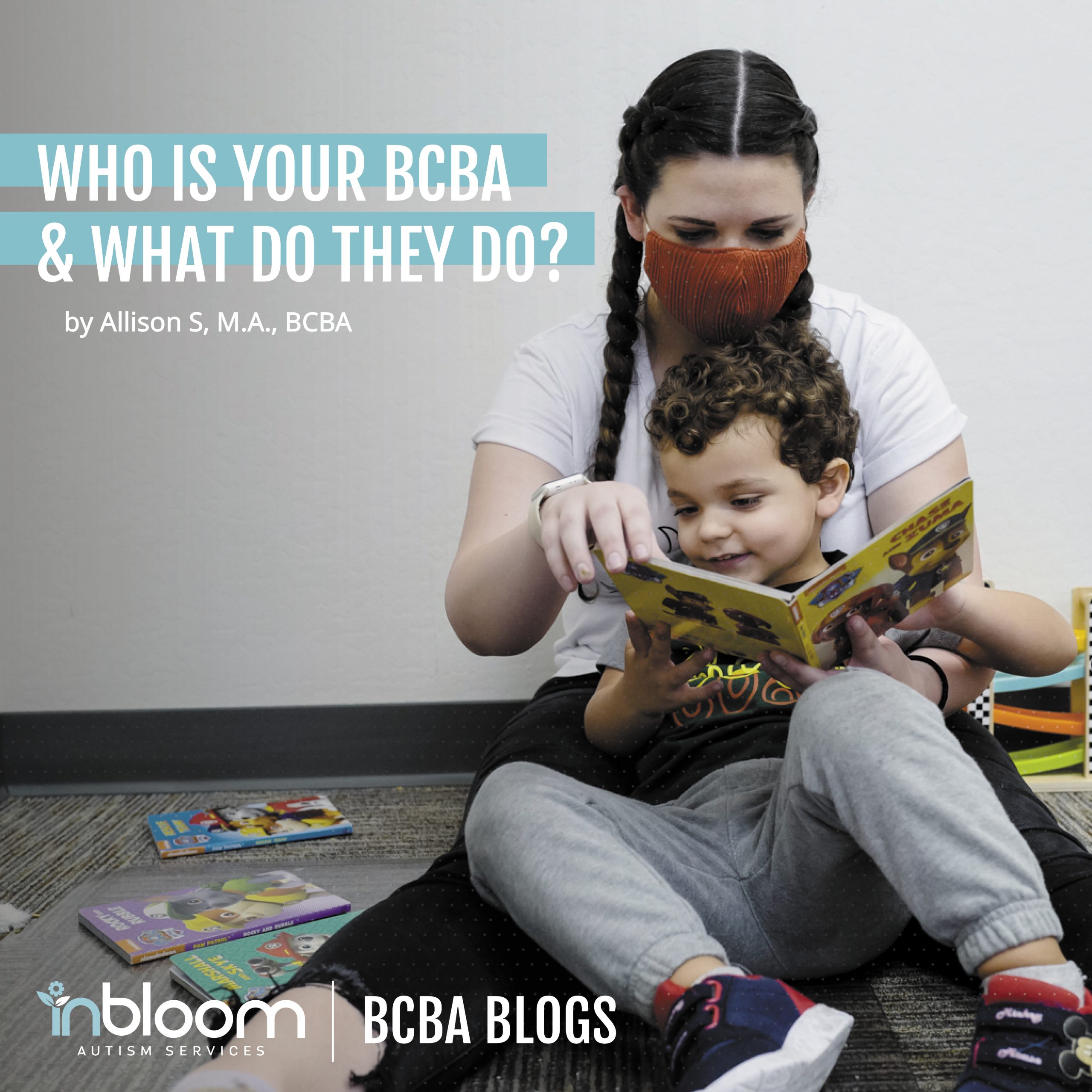Who Is Your Child’s BCBA and What Do They Do?

When your child begins receiving Applied Behavior Analysis (ABA) therapy, you’ll quickly be introduced to a range of new terms and new team members.
Among the most important is your child’s Board Certified Behavior Analyst (BCBA). But what do they do, and how are they involved in your child’s care?
From initial assessment to ongoing treatment planning, your BCBA plays a central role in ensuring that therapy is personalized, effective, and collaborative.
What Is a BCBA?
A BCBA is a master’s-level clinician who has met rigorous academic, fieldwork, and certification standards. Their training allows them to design and oversee ABA therapy programs for individuals with autism (and related developmental conditions).
Understanding the ABA Team Structure
- The BCBA is the team lead who creates and monitors the overall plan.
- The Registered Behavior Technician (RBT) implements that plan in day-to-day sessions.
Together, they work in sync to help your child learn and grow.
BCBA vs RBT: Different but Collaborative Roles
While the RBT works directly with your child during most sessions, the BCBA provides the clinical oversight, planning, and training that guide every step.
Understanding this distinction helps clarify what each provider brings to your child’s care and how they work together.
Did you know that InBloom’s ABA therapy programs can also include a focus on learning readiness skills? Call 888-754-0398 or speak to your child’s InBloom BCBA!
Key Roles Your BCBA Plays in ABA Therapy
BCBAs take on a variety of critical responsibilities throughout your child’s ABA therapy journey.
The Initial Assessor
Your first interaction with a Board Certified Behavior Analyst (BCBA) typically happens when your child begins ABA services.
During this time, the BCBA:
- Conducts direct and indirect assessments.
- Gathers medical and developmental background.
- Identifies current skill levels and behavioral challenges.
This comprehensive evaluation sets the foundation for a customized ABA treatment plan.
The Treatment Plan Developer
Once the assessment is complete, your BCBA begins to develop a personalized plan tailored to your child’s unique strengths and needs. This includes:
- Defining behaviors targeted for reduction.
- Establishing replacement behavior goals.
- Creating skill acquisition goals (e.g., communication, self-care).
- Designing parent training objectives.
- Drafting a Behavior Intervention Plan (BIP) to outline proactive strategies and responses.
The Communicator and Collaborator
Your BCBA plays an essential role in helping you understand your child’s therapy plan. They:
- Walk you through goals, strategies, and timelines.
- Adjust programming based on progress and feedback.
- Answer questions and explain clinical decisions.
- Collaborate with other healthcare providers, such as speech therapists, occupational therapists, and physical therapists, to ensure a coordinated approach.
The Programmer and Trainer
BCBAs write plans and make sure they’re actionable. They:
- Develop and update your child’s ABA programs.
- Train RBTs and caregivers on how to effectively implement programs and services.
- Offer regular parent coaching sessions to support generalization at home.
- Supervise RBTs frequently to ensure fidelity and make real-time adjustments.
ABA therapy is most effective when families are fully involved. BCBAs are here not only to support your child but to coach and empower you as a caregiver.
Open Communication Leads to Better Outcomes
Consistent communication with your BCBA builds trust and ensures your input is heard. If there’s a skill you’d like your child to learn or a concern you want addressed, your BCBA is your go-to partner.
How Parent Coaching Supports Skill Generalization
Generalization refers to applying learned skills across various environments and individuals. Parent coaching plays a crucial role in this by helping you reinforce behaviors outside of therapy sessions.
BCBAs will guide you in using reinforcement, prompting, and data tracking techniques at home.
Your BCBA’s Goal: Long-Term Success for Your Child
At the heart of every ABA plan is a long-term goal: helping your child achieve meaningful, lasting growth personalized for them.
Building Independence and Meaningful Progress
Your BCBA is focused on fostering growth that supports your child’s independence, social participation, and communication skills. Every goal is chosen with your child’s future in mind.
Creating Lasting Positive Change at Home and School
The ultimate goal of ABA therapy is to create real, positive change in your child’s daily life. BCBAs aim to help your child thrive in home, school, and community settings.
Ready To Connect With Your Child’s BCBA?
Your child’s Board Certified Behavior Analyst plays a vital role in creating meaningful, long-term progress through ABA therapy.
Whether you’re just starting services after a diagnostic evaluation or looking to deepen your involvement, ongoing collaboration with your BCBA can help you better understand your child’s needs, support their growth, and celebrate every milestone along the way.
Do you have questions, or would you like to learn more about how a BCBA can support your family? Contact our team or find a Learning Center near you to get started today.



